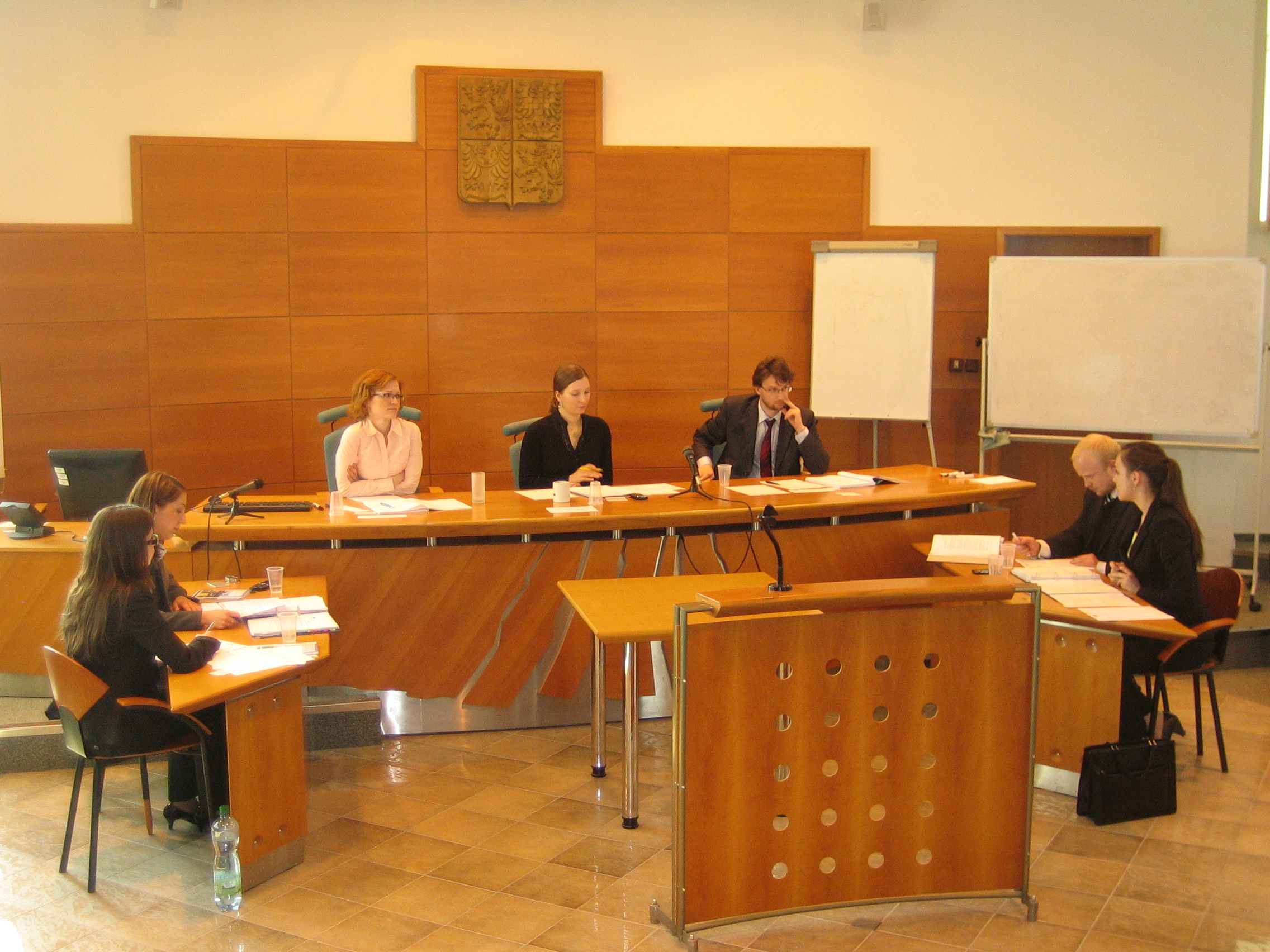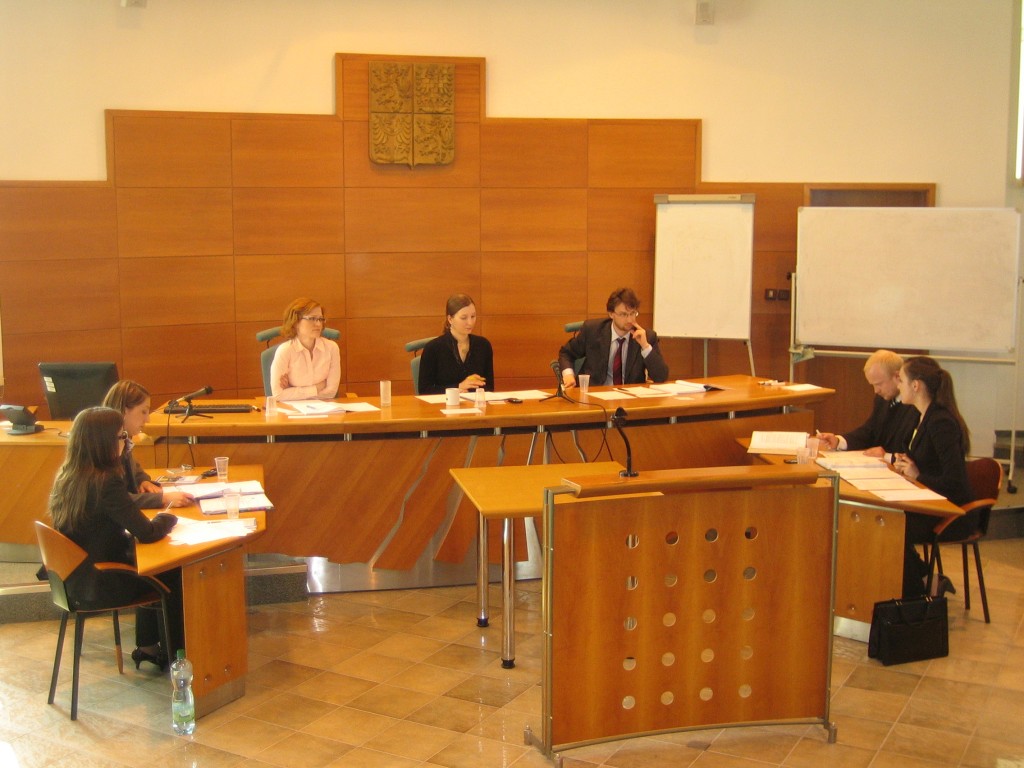Did you know that there is a pre-moot of the Vis moots in India? This article was originally published in Gyancentral.com in 2012.
Last weekend, I had the opportunity to visit NALSAR for the first time. I have visited a lot of law colleges and NLUs until now, for various reasons, but this was my first visit to NALSAR. The occasion was to judge a moot – a pre-moot for the Willem C. Vis CISG moot court competitions that are held in Vienna and Hong- Kong (in case you didn’t know, both the Hong Kong and Vienna version of the moots have a common moot problem, many common judges, and a shared mooting culture).
The invitation had come suddenly, and I almost decided to pass on it given the short notice. However, it turned out that the moot is suffering from an acute shortage of judges and may get cancelled for this reason – and I made up my mind to go. There was a reason behind this – I have a personal connection to this pre-moot.
I went for the Vis East, the Hong Kong version of the moot in 2010 – when I was in fourth year of law college. During the competition in Hong Kong I found that many of the teams I was facing had gone for several pre-moots before coming to Hong Kong.
What are pre-moots? A pre-moot is a moot organised on the same problem as the main moot, and is used as a testing ground and practice before the real moot. How is it to argue before a panel of arbitrators? How about testing out some intelligent but unusual arguments safely before judges? Would it help to get the experience of arguing the case again and again in several courts before many different judges so that you become aware of the areas in which you need to improve? Pre-moots open a world of possibilities and enhance performance. Most of the Indian teams that went on to win one Vis moot or the other did go for pre-moots in Europe, which should make it evident as to how helpful pre-moots can be with respect to preparing for the real moot.
Let me tell you what happened to me when I went for the Hong Kong moot. In India, people moot in a very adversarial way. The judges ask you hundreds of questions, interrupt you every half a minute if not more frequently and the arguments are often more like conversation with the moot court judge – who is being a unreasonable sceptic and you are trying to convince him. There are some less adversarial versions too, but usually your performance depends largely on your oratory skills, ability to handle questions and intricate knowledge of law. The presentation is entirely different from what is required in a Vis moot.
At Vis, a speaker may face two or three questions during the entire duration of his or her arguments. The speaker has to make a speech, making his case, which is rarely interrupted. Everyone’s arguments are usually pretty much the same, with novel arguments surfacing really rarely and not always rewarded. Knowledge of law is not tested beyond a low threshold and even taken for granted in most cases, unless in very advanced rounds or before unusual judges.
While practicing in India before seniors who have done Vis before, I completely missed the point. I prepared like I will prepare for an Indian moot – with deep legal research and unique arguments whereas what was more needed was a well-crafted speech. I needed to work on my presentation skills. By the time I realised the cultural difference between the moots I have been to earlier and this one, it was too late. Had I gone for any pre-moot, I could easily figure out these things much earlier and prepared accordingly. As I spoke to other Indian teams it seemed that almost all other teams were plagued by similar problems. Incidentally, that year no Indian teams broke to the quarterfinals in Hong Kong (it was won once by NUJS, my alma mater).
All over Europe, there are dozens of pre-moots for Vis teams. Another half dozen in the United states takes place every year. Even Japan has a pre-moot for Vis. Although Indian teams participate in large numbers in Vis, there was no pre-moot in India. This meant that if Indian teams wanted to benefit from a pre-moot, they had to travel to Europe in most cases. Of course, this is not very easy for most Indian teams, given that they already struggle to raise the money to go for the original event itself. I really felt that there should be an Indian pre-moot for Vis – after all how difficult is it anyway to organize one?
On my return, I mentioned this to the erstwhile Moot Court Committee Convenor and Co-convenor – Deepak Raju and Rukmini Das. Deepak mentioned it almost a year later to Shreya Parekh, a NALSAR alumnus who was then visiting NUJS on account of the Herbert Smith Corporate Law Moot. From the following discussion the first Indian Vis pre-moot was born with patronage of both NALSAR and NUJS students.
The pre-moot was held with a lot of glory in NUJS in its first year, and the winning team even received substantial prize money intended to cover their expenses for going for the actual moot. Law firm Bharucha and Bharucha, as well as some other sponsors came forward to make it happen. In 2012 the moot was held in NALSAR, for the second time. In that year, a team from NALSAR went on to win Vis West – a stunning feat.
In 2013, however, things became difficult as no sponsorship could be found and some sponsors backed out in the last moment making things very difficult for the organisers. Finding enough judges who have been to Vis moots in Hyderabad is not easy; hence a few of us were called in. I must say that the shortage of funding did not affect quality of the moot – it was a wonderful moot in terms of participation, quality of teams, interaction and knowledge sharing. This was possible due to the extremely passionate and dedicated team of the NALSAR students, comprising also of the winners of Vienna last time – Ridhdhi, Jagdeesh, Poorvi and others. While judging I took extensive notes on how to improve performance in mooting for the purpose of giving feedback to the participants, I will try and share some of those in this column with you soon.
10 teams participated in the pre-moot. The overall quality of speakers was extremely good – we can definitely look forward to some awesome performance of the Indian teams in Vis this time. The moot was won by NLU Delhi while the runner up was Symbiosis Pune.
I hope in the coming years the NUJS as well as NALSAR mooters will take the initiative to take the pre-moot to the next level. In fact, I would hope that more Law universities will come forward in future to host the pre-moot and help with organizing.
 Serato DJ Crack 2025Serato DJ PRO Crack
Serato DJ Crack 2025Serato DJ PRO Crack










 Allow notifications
Allow notifications


